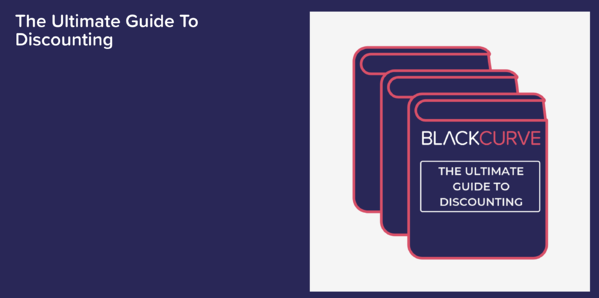So… how can you make discounting work for you and not against you?
First of all, you need to know the difference between a “good discount” and a “bad discount”. Bad discounts are the types of discounting that can potentially harm your business. If you simply discount just to match your competitor’s price or to close a deal, you may gain new customers, but not necessarily profitable ones. Doing so might also give your customers the impression that your business is no better than others, which degrades your brand and makes it hard for you to justify a price raise in the future.
However, not all discounts are made the same. There are situations when discounting can benefit the company:
A. DISCOUNTING TO GET RID OF OTHERWISE UNSOLD INVENTORIES
If you have products that would perish or become obsolete in the very near future, and if the demand is not high enough, you probably would not want to hold onto them. In this situation, discounting is preferable as it is still better to minimise the loss than sell nothing.
B. DISCOUNTING TO REWARD LOYAL CUSTOMERS
If you have accounts that have done good business with you for a long time, you might consider giving them some special treatments just to show gratitude and maintain good relationships. In this case, discounting can act as a reward, and while you may not maximise your profit, you probably will have some great partnerships which often leads to increase orders.
C. DISCOUNTING THANKS TO ECONOMIES OF SCALE
If you have a large order that allows you to achieve economies of scale or receive discount from your suppliers, you may consider passing part of the gain to your customer under the form of discounting. On the same note, if discounting can be linked to greater volume sales and lower unit costs for your business, giving a discount does not necessarily mean hurting your margin.
Don't forget you can download Ultimate Guide To Discounting for free:
As you can see, not all discounts are bad. However, even when you know what types of discounting to be used, it might not always work out as well as you expected. In many cases you will run into pricing leakage and money-left-on-the-table problems. Why does this happen? It all comes down to two basic reasons:
1. YOU LACK CONTROL OVER THE SALES NEGOTIATION PROCESS
When your sales people encounter difficulties in the negotiation process, they tend to rely on discounting to close the deal, instead of trying to ask for the ideal price. If sales volume quota or revenue quota is all they care about, they might end up over-discounting, as that does not have any impact on their performance. Or they may have to wait for your approval, but such process takes time, and by the time they get back to the customer, the deal might be gone already.
2. YOU LACK AN EFFECTIVE SYSTEM TO MANAGE DISCOUNT RULES
Imagine you have an exhaustive price list with large numbers of products and customers. If you want to set different discount rates for different products, different customers, different levels of inventories, etc., you might find it challenging to manually go through each item. As a result, usually only products that bring the highest profit and large accounts are taken care of, while the rest may not receive much attention.
In order to solve those problems and make discounting work in your favour, there are a couple things you should consider doing:
ALIGNING SALES INCENTIVES AND METRICS TO DESIRED PRICING OUTCOME
If you want your team to behave in certain ways, your compensation and reward plan should be designed to promote such behaviours. In this case, if you do not want sales people to over-discount, aside from measuring the amount of revenue they generate, you should also track their effort in staying within discount guidelines and achieving healthy margins.
EDUCATING YOUR SALES STAFF
A reason why sales people tend to resort to discounting is because they are not thorough about the values of the business and products. Giving them training about sales techniques and equipping them with better knowledge about the business and products will allow them to be more confident, persuasive, and agile during their negotiations.
EMPLOYING A SPECIALISED PRICE AND QUOTE MANAGEMENT SYSTEM
With such a system, you can make sure that your discounting guidelines are communicated effectively to the sales staff, and that there is no more lengthy back-and-forth emails to give out quote approvals. A system like that can also allow you to set complicated discounting rules based on various factors so that each discount is optimised to work in your best interest.
Conclusion
With the right strategy, discipline, and control, discounting can add extra benefits to your business. According to research conducted by PriValEdge, companies that exercise good discount rules can see 5% increase in volumes and 60% increase in profit.


